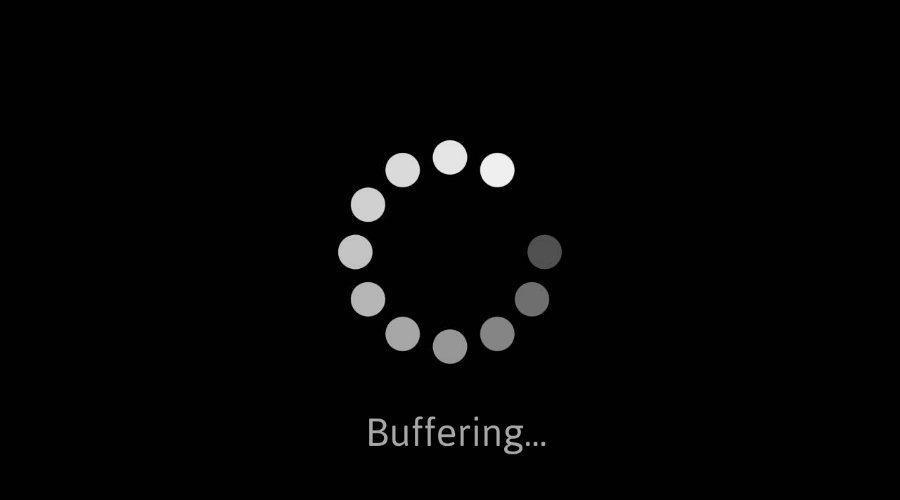Netflix To Cut Traffic Stream To European Networks By 25% For 30 Days
Netflix announced on Thursday afternoon that it will cut traffic to its European networks by 25% for 30 days to preserve internet functionality amid the coronavirus crisis, following discussions with European Commissioner Thierry Breton.
The issue of Netflix’s internet hogging – as a reminder video streaming is the single largest user of internet bandwidth – emerged as more people have been staying and working at home in an attempt to slow the virus’ spread, resulting in growing concern about whether the net has the bandwidth to withstand increased usage.
European Union commissioner Thierry Breton had raised the issue with Netflix CEO Reed Hastings and suggested via Twitter that people at home not stream video in high definition if they can and instead watch in standard definition.
Important phone conversation with @ReedHastings, CEO of @Netflix
To beat #COVID19, we #StayAtHome
Teleworking & streaming help a lot but infrastructures might be in strain.
To secure Internet access for all, let’s #SwitchToStandard definition when HD is not necessary.
— Thierry Breton (@ThierryBreton) March 18, 2020
“Teleworking & streaming help a lot but infrastructures might be in strain,” Breton tweeted Wednesday. “To secure Internet access for all, let’s #SwitchToStandard definition when HD is not necessary.”
After additional discussion between Hastings and Commissioner Breton, Netflix said in a statement sent to USA TODAY, “given the extraordinary challenges raised by the coronavirus – Netflix has decided to begin reducing bit rates across all our streams in Europe for 30 days. We estimate that this will reduce Netflix traffic on European networks by around 25% while also ensuring a good quality service for our members.”
Following the report, Breton said “I welcome the very prompt action that Netflix has taken to preserve the smooth functioning of the Internet during the COVID19 crisis while maintaining a good experience for users.”
Netflix did not say how much of a reduction its various streams would get. Streaming standard-def movies or TV shows require about one-third the bandwidth of HD video, about one gigabyte for SD video in an hour, compared to 3GB for HD, according to Netflix.
Initially, Netflix simply said Breton, a France-hailing commissioner in charge of the EU’s single market, had risen an important issue, a spokesperson for the streaming provider told CNN, which first reported the exchange. “Commissioner Breton is right to highlight the importance of ensuring that the Internet continues to run smoothly during this critical time,” Netflix said in a statement to USA TODAY. “We’ve been focused on network efficiency for many years, including providing our open connect service for free to telecommunications companies.”
The provider’s open connect program gives companies such as Comcast and Verizon a more direct connection between its network and Netflix’s servers for improved delivery of content.
Internet traffic “is up no doubt,” said Sajid Malhotra, chief financial officer of online video delivery company Limelight Networks.
But internet congestion “happens by region and then within a region by carrier,” he said. “I don’t know what exactly drove the EU to issue the statement that they did. Maybe they were just seeing the trends and extrapolating if those trends continue out further and further then they could have problems.” He also said that congestion is “a manageable issue and it is not universal.”
asking viewers to opt for lower-resolution video is not out of line, says Cam Cullen, vice president of marketing for networking company Sandvine. His research has found YouTube, which always generates the most mobile traffic, has surpassed Netflix as the top traffic generator overall during the recent global health crisis.
“We are definitely seeing big jumps in usage around the world as people are staying in their homes,” Cullen told USA TODAY. “This is not only streaming, but other traffic types that cause streaming issues – gaming, file sharing, software updates, telework, and VPNs.”
Verizon on Tuesday said it saw an increase of 75% over its networks in the past week due to online gaming, with video streaming up more than 12% and overall web traffic up by about 20%. Last week, several major broadband providers loosened restrictions and boosted internet speeds for customers.
Tyler Durden
Thu, 03/19/2020 – 14:54
